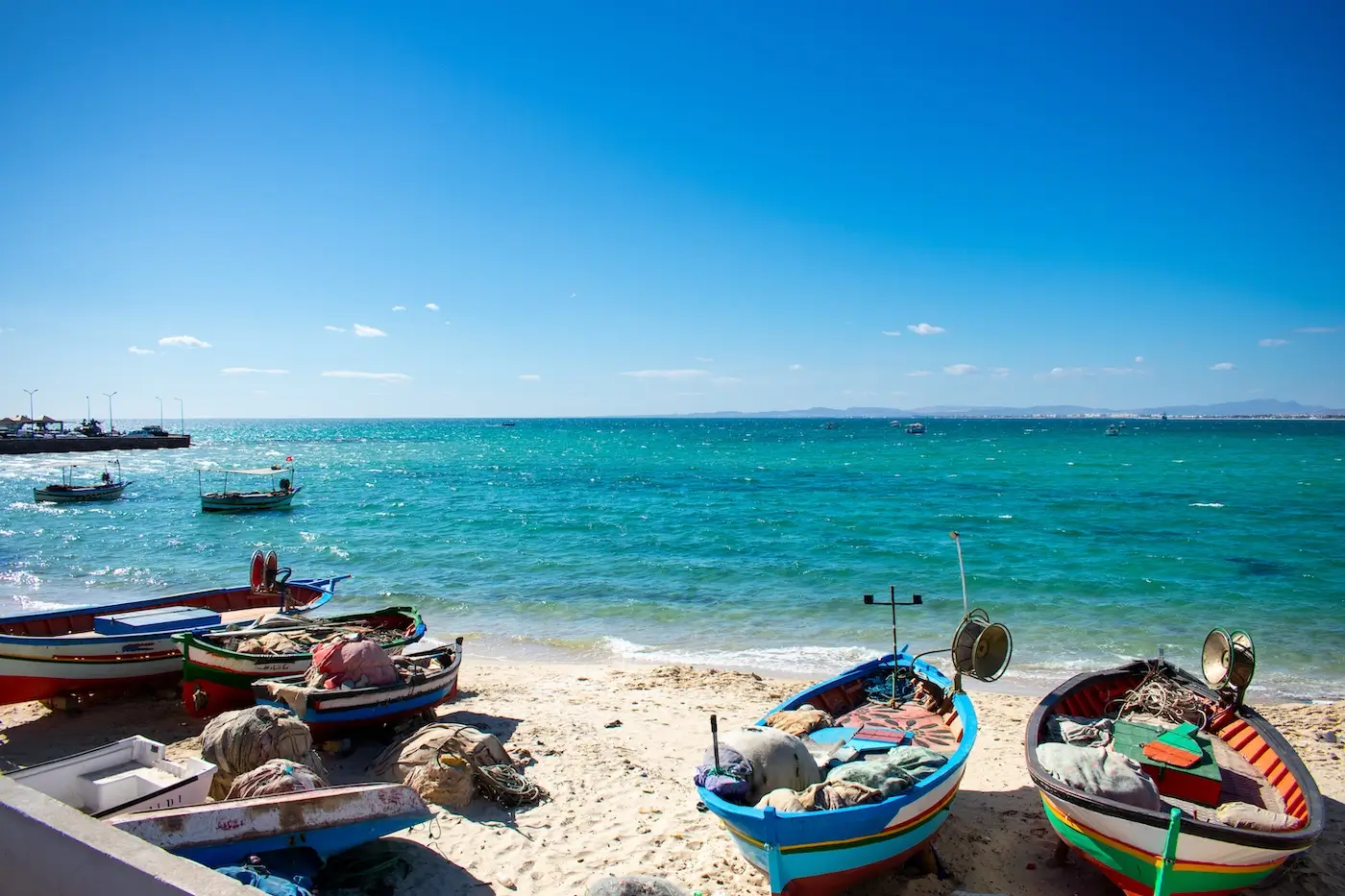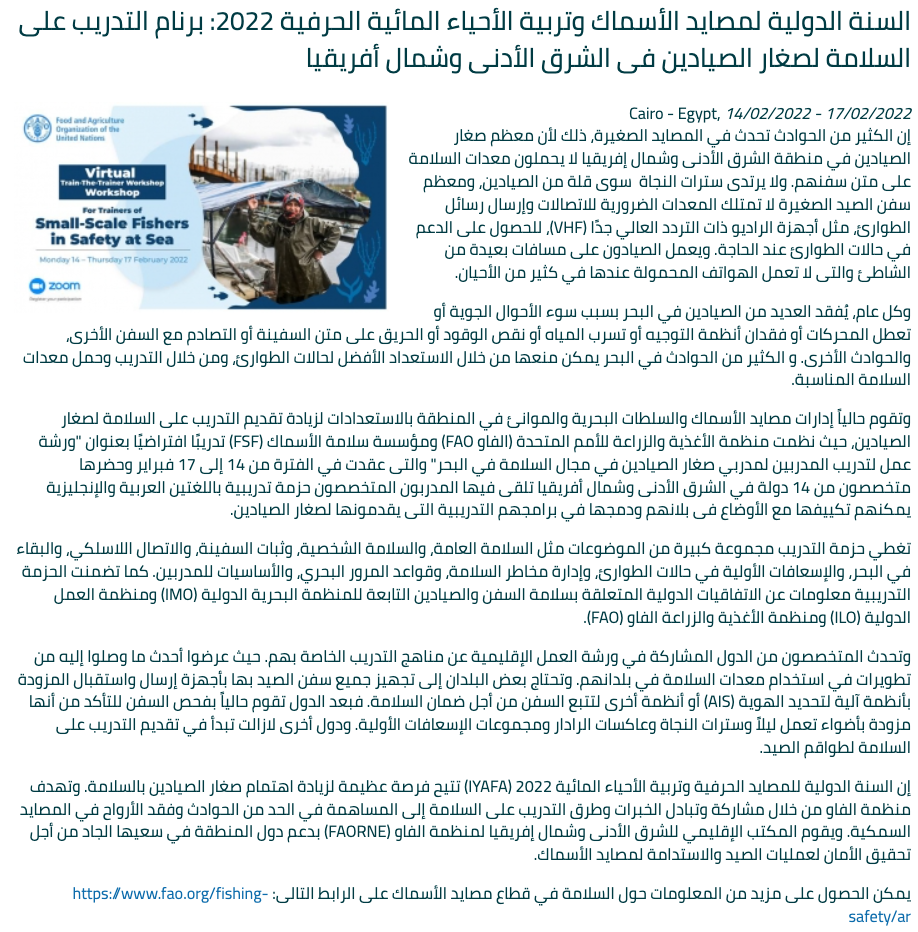
Every year many fishers are lost at sea, due to bad weather, engine failures, loss of steering systems, water leakage, running short of fuel, fire on board, collisions with other vessels and other accidents. A lot of accidents at sea can be prevented by better preparedness for emergencies, by training and carrying the right safety equipment.

Training Event Poster
Fisheries departments, maritime and port authorities in the region are gearing up to increase safety training delivery to small-scale fishers. The Food and Agriculture Organization of the United Nations (FAO) and the FISH Safety Foundation (FSF) organized a virtual training the trainer workshop for trainers of small-scale fishers in safety at sea. The workshop was held from 14 to 17 February and was attended by professionals from 14 countries in the Near East and Northern African region. The professionals received a training package in Arabic and English languages, which they can adapt to the national situation and integrate in their training programmes for small-scale fishers.
The training package covers a large range of subjects, such as general safety, personal safety, vessel stability, radio communication, survival at sea, emergency first aid, safety risk management, marine traffic rules, and trainer fundamentals. Information on the international conventions and agreements on safety of vessels and fishers of the International Maritime Organization (IMO), International Labour Organization (ILO) and FAO is also included in the package.
The professionals from participating countries talked about their own training approaches at the regional workshop. They shared advances in safety equipment use in their countries. Some countries need all their fishing vessels to be equipped with Automatic Identification Systems (AIS) transponders or other vessel tracking systems for safety. Various countries inspect the vessels for having functioning lights for at night, life jackets, radar reflectors and first-aid kits. Other countries are just starting with safety training for fishing crew.
The International Year of Artisanal Fisheries and Aquaculture (IYAFA 2022) provides a great opportunity to increase attention to safety in small-scale fishers. By sharing experiences and safety training methods FAO aims to contribute to a reduction of accidents and loss of life in fisheries. The FAO regional Office for the Near East and Northern Africa (RNE) supports countries in the region in striving for safe fishing operations and sustainable fisheries.
More information on safety in the fisheries sector can be found at: https://www.fao.org/fishing-safety/en/
